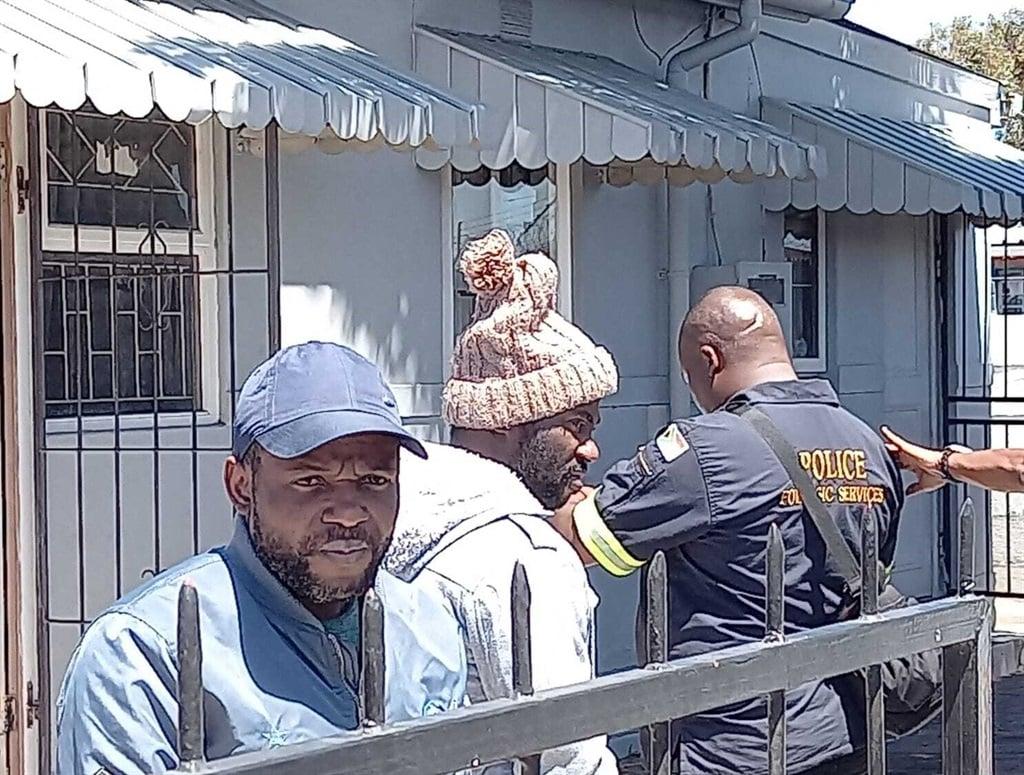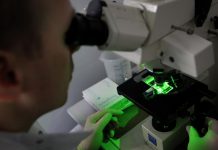Africa-Press – South-Africa. The petite woman hung back slightly, as though not wanting to step into the house in Cape Town’s Brooklyn, where she was allegedly trafficked and kept as a sex worker.
The constant traffic along nearby Koeberg Road was barely audible as Western Cape High Court Judge Alma de Wet, the defence, the prosecutor, police and an interpreter gathered around the transformed house on Piet Grobler Road.
Completely unrecognisable, all the old features were redone and the house remodelled into several different rental accommodation areas.
With chains linking their handcuffed wrists, and restraints on their feet, the accused – Edward and Yannick Ayuk – looked at the house, which is directly opposite the high, red brick wall of the Ysterplaat military base.
Their co-accused, Leandra Williams Ayuk, marvelled at the changes made to the house, which also sported a new coat of paint.
The three are accused of running a sex trafficking and drugs network between the Brooklyn property and Springbok in the Northern Cape.
They pleaded not guilty to all charges.
Neighbours strolled out inconspicuously to see what was happening. The tenants who now live there waited patiently on a worn couch under a tree as everybody traipsed in and out, taking note of the height of the wall, the kitchen now converted into another bedroom, the bedroom itself, the ablutions and the entrance hall, which has since been turned into a tiny kitchen.
The current owner rents it out as a house share to cater to Cape Town’s high demand for rental accommodation.
Several women and girls have testified that they were offered a chance to relocate from where they already did sex work to Cape Town, where they were promised a lot more money in a far better environment.
The State alleges that the victims were women and girls in their early teens, who seemed disconnected from their families and addicted to hard drugs.
One of the women testified that her addiction was so severe that she was given drugs to prevent withdrawal on the bus trip to Cape Town.
However, they testified that things were not as rosy as promised once they had settled into the house. They were paid in drugs, with no money of their own, were not allowed to leave the property unless it was for work, and were not allowed to make personal calls on the cellphones given to them. It was only to be used for clients.
On Tuesday, police officers measured distances, and took photographs of the inside of the neatly-painted grey rooms, with white and pale green finishes, and the lounge dwarfed by a large, grey modern sofa and TV unit.
A framed child’s school certificate took pride of place on the TV stand opposite the electricity meter. The landlord was on hand to assist with details of changes to the layout.
The spaza shop, in what would have been the front garden, was inspected and it displayed rows of cooking oil and snacks.
Later, the delegation travelled to “the corner”, where the women and the girls would wait for clients.
Nearby, a group of boys played a game of soccer. Further along the road, the delegation passed a large pavement tent city, complete with pot plants and outdoor ornamentation.
Rounding that corner, the woman pointed out the house of another man, who is not on trial but was examined thoroughly for potential links to the Piet Grobler Road house.
He had strongly denied it. In front of his house, as promised during his testimony, were cars in various states of repair for his business as a mechanic.
The trial will continue on Thursday, where the court will use the observations noted in the inspection, to better visualise events and places raised in testimony.
For More News And Analysis About South-Africa Follow Africa-Press






